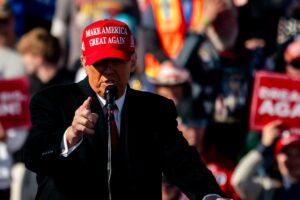Washington, July 20 (CNA) The United States is doing everything it can to address the US$19 billion-worth of delayed weapons deliveries to Taiwan, according to a senior Pentagon official on Thursday.
The administration of President Joe Biden is working through the foreign military sales process while also utilizing “the Presidential Drawdown Authority (PDA) and potentially Foreign Military Financing,” said Ely Ratner, U.S. assistant secretary of defense for Indo-Pacific security affairs.
Speaking during a hearing held by the House Select Committee on the Chinese Communist Party, Ratner said the delayed Taiwan weapons transfer was not due to a “backlog” but rather the result of systemic problems within the U.S. defense industrial base.
“What we are facing is not a backlog as is sometimes described, but rather concerns and slowdowns within all of our industrial base that is affecting our military production and our defense industrial base systematically, not individually as it relates to Taiwan,” he explained.
As a part of the 2023 budget, the U.S. Congress in December last year authorized up to US$1 billion in military aid to Taiwan via the PDA, which takes weapons from existing Pentagon stocks and ships them overseas.
In May, U.S. Defense Secretary Lloyd Austin confirmed at a Senate hearing that the U.S. would also soon send Taiwan US$500 million in stockpiled military equipment using the PDA, but nothing has been announced so far.
The hearing on Thursday was also attended by Daniel Kritenbrink, assistant secretary of state for East Asian and Pacific affairs.
At the event, Republican Representative Michelle Steel asked why Taiwan, despite being a like-minded ally of the U.S., has not been included in the Indo-Pacific Economic Framework (IPEF).
“The way that IPEF is currently configured, it has 14 partners. That’s where we are focused for now,” Kritenbrink said without elaborating.
Going back to the cross-strait issue, Kritenbrink said that “from the very beginning our [U.S.] policy and our approach has been predicated on the maintenance of peace and stability across the Taiwan Strait and peaceful resolution.”
He stressed that there has not been any change to the U.S.’ “one China policy” over the last 40 years and “that approach has been fundamental to maintaining peace and stability.”
Source : Focus Taiwan















